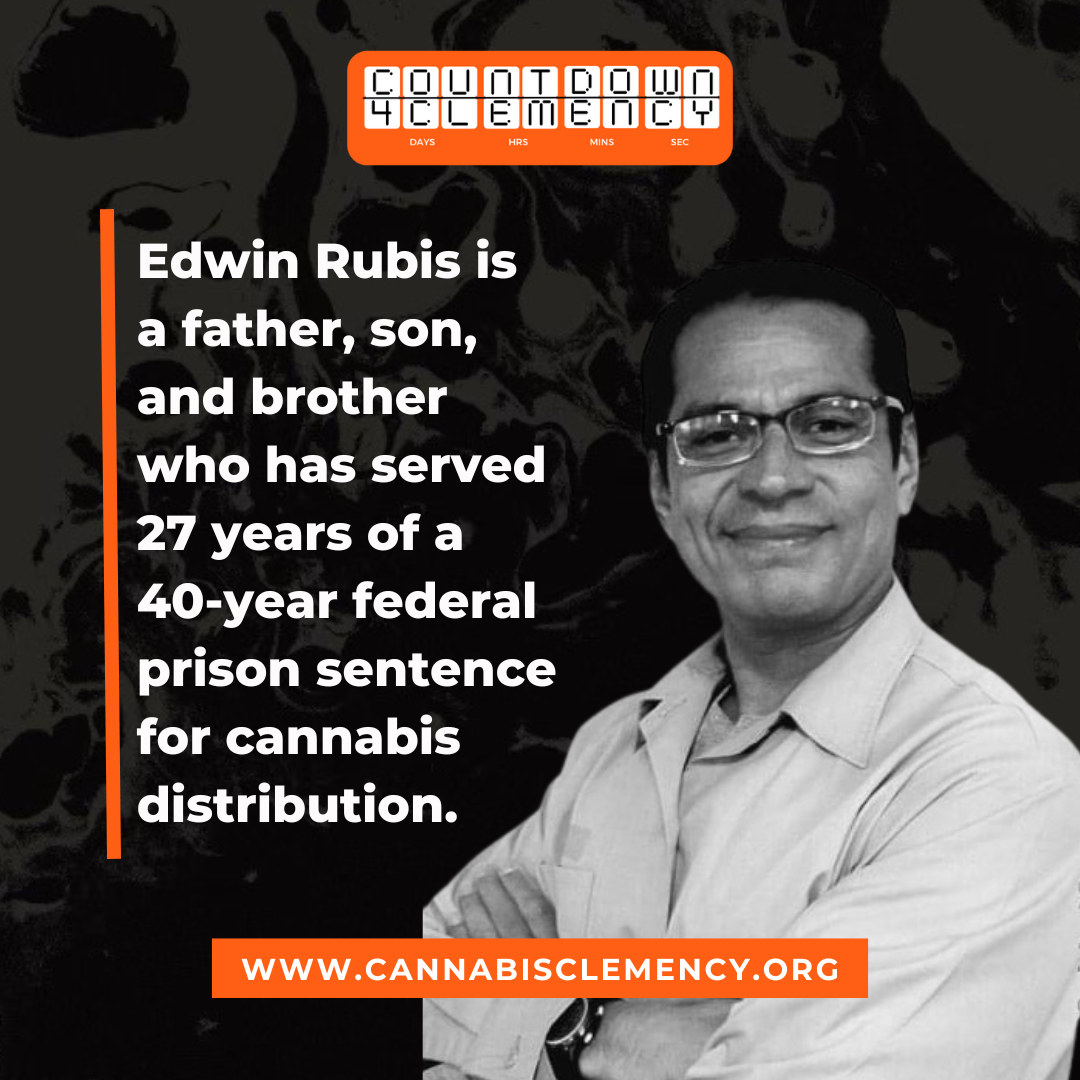COUNTDOWN FOR
CANNABIS CLEMENCY
Join Last Prisoner Project and other cannabis justice advocates in urging President Biden to use his clemency power to release every last federal cannabis prisoner before the end of his term.
Time is running out to turn words into action. President Biden must keep his promise and release the over 3,000 people still in federal prison for cannabis convictions. Join us as we #Countdown4Clemency.
Free
All
Cannabis
Prisoners!
Call President Biden:
Free All Cannabis Prisoners! Call President Biden:
Pardon People. Not Poultry.
Every Thanksgiving, the President pardons a turkey. Meanwhile, thousands of Americans still sit in prison for cannabis offenses. Let’s encourage the White House to prioritize pardoning those Americans over a bird.
President Biden’s Promise.
On the campaign trail, Biden promised, “Everybody out, records expunged.” His pardons were insufficient to fulfill these words, but he can still take further action by releasing individuals via commutations.
The Impact of the Pen.
Ricardo Ashmeade continues to serve a 22-year federal cannabis sentence because of a 3-strikes law that then-Senator Joe Biden championed.
His daughter Richeda Ashmeade has been separated from her father for 16 years. Now in her final semester of law school, President Biden can reunite their family in time for her graduation using the #PentoRightHistory .
STORIES OF INJUSTICE



The Clemency Power.
Article II of the U.S Constitution gives American presidents the unilateral authority to grant clemency, or “reprieves and pardons for offenses against the United States."
The Framers conceived of the clemency power (an umbrella term that includes pardons, commutations, and amnesties) as a mechanism for correcting the inevitable injustices and systemic shortcomings of America’s legal system.
To that end, this absolute power gives the President the (all-too-often squandered) opportunity to dispense “the mercy of government” in cases where the justice system has failed to deliver a morally and publicly acceptable result.
Before 1980, pardons and commutations were considered akin to a “day-to-day” responsibility of the President. However, In the intervening decades, high-profile controversies have led many to understand clemency as anachronistic and corrupt. Unfortunately, these high-profile failures of stewardship have resulted in a clemency power that’s largely fallen into disuse.
This hollowing out of the clemency power has obscured an important dimension of the power — “clemency as a systematic policy tool”. After all, the Framers envisioned clemency as a powerful way for a President to shape policy, catalyze action, and communicate their law enforcement priorities. In fact, at least a third of all US presidents have wielded the power as such.
To that end, President Biden should use this policy-shaping power to provoke a national conversation about these critically important issues. Not only would this effort help push forward popular criminal justice and drug policy reforms, but it would also help limit the legal implications of federal cannabis prohibition in advance of broader legislative solutions.
Clemency Policy.
The Details.
While a true dismantling of systemic racism and ‘criminal injustice’ will demand action outside of pardons and commutations, we can think of few things more viscerally unjust than the plight of the thousands of people currently incarcerated in federal prisons for nonviolent cannabis violations.
After all, these “cannabis prisoners” (who unsurprisingly, are disproportionately people of color) remain behind bars for years, decades, or even for life, for doing the exact same thing that has given birth to a $24 billion dollar industry.
In partnership with a coalition of other advocates, policymakers, and public figures, The Last Prisoner Project is calling on the Biden Administration to issue clemency grants to tens of thousands of individuals incarcerated due to—or otherwise burdened by—federal cannabis-related convictions.
Show Your Support.
President Biden’s Past Statements.
“There are so many people who are in jail and shouldn't be in jail… Nobody should be in jail for a nonviolent crime.”
— President Biden, Sept. 2019
“[The Black community] was hurt by the drug policies, the drug policies of the ‘80s… It was a mistake, and I’ve been trying to change it since then.”
— President Biden, Nov. 2020
“What we should be doing is not putting people in jail for crimes that in fact are on the books that really shouldn’t be on the books…”
— President Biden, July 2019



